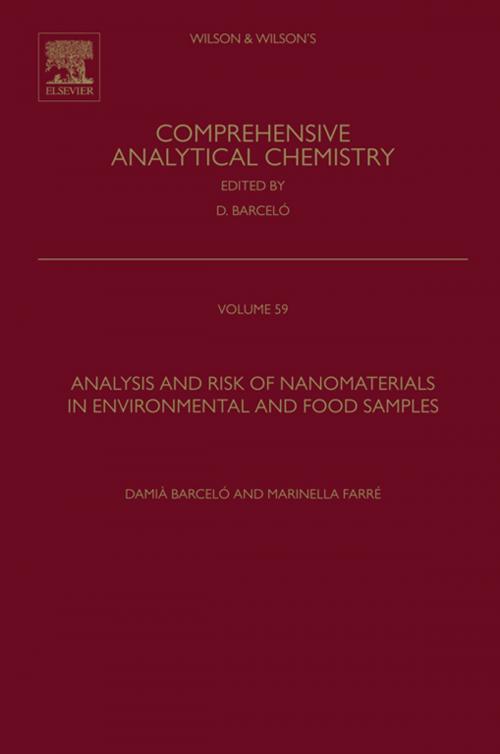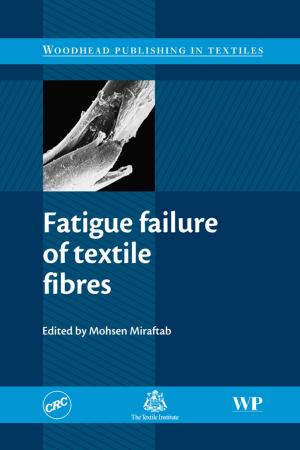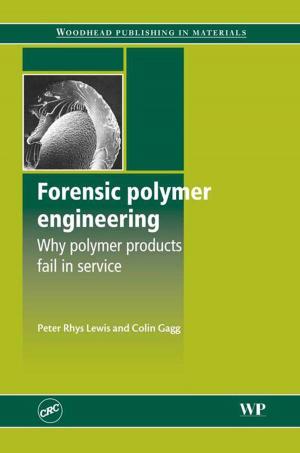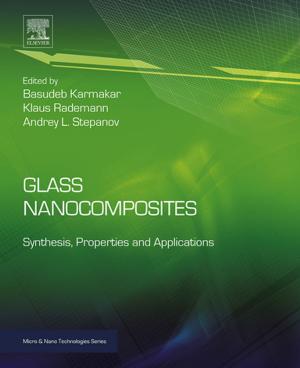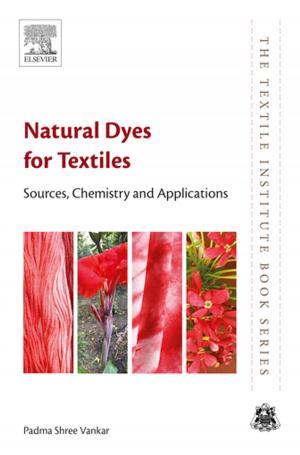Analysis and Risk of Nanomaterials in Environmental and Food Samples
Nonfiction, Science & Nature, Science, Chemistry, Analytic, Biological Sciences, Environmental Science| Author: | ISBN: | 9780444563293 | |
| Publisher: | Elsevier Science | Publication: | August 20, 2012 |
| Imprint: | Elsevier | Language: | English |
| Author: | |
| ISBN: | 9780444563293 |
| Publisher: | Elsevier Science |
| Publication: | August 20, 2012 |
| Imprint: | Elsevier |
| Language: | English |
The application of nanotechnology in different consumer products has delivered new products with highly desirable properties, but at same time has opened a new window for a wide group of emerging contaminants and a new type of human exposure which needs to be assessed.
Most of the current human toxicological information on nanomaterials comes from nano-sized particles in air, and their effects via inhalation. Other routes of human exposure, such as water and food, and the effects on human health and the environment have been less studied. It is the recent research in these areas that is highlighted here in one of the first books covering the analysis and ecotoxicological evaluation of nanomaterials in food and the environment, with both matrices being of considerable interest. In addition to providing a global summary of recent research, this book shows how widely used chromatographic and spectroscopic methods can be added to the analytical arsenal of microscopic techniques that have commonly been used to characterize nanomaterials.
- Describes the analytical techniques used to characterize nanomaterials and their applications in environmental or food samples
- Includes analysis and ecotoxicological evaluation of nanomaterials in food and environmental matrices
- Takes a detailed look at the research on emerging fields of human exposure to nanomaterials and their environmental risks
The application of nanotechnology in different consumer products has delivered new products with highly desirable properties, but at same time has opened a new window for a wide group of emerging contaminants and a new type of human exposure which needs to be assessed.
Most of the current human toxicological information on nanomaterials comes from nano-sized particles in air, and their effects via inhalation. Other routes of human exposure, such as water and food, and the effects on human health and the environment have been less studied. It is the recent research in these areas that is highlighted here in one of the first books covering the analysis and ecotoxicological evaluation of nanomaterials in food and the environment, with both matrices being of considerable interest. In addition to providing a global summary of recent research, this book shows how widely used chromatographic and spectroscopic methods can be added to the analytical arsenal of microscopic techniques that have commonly been used to characterize nanomaterials.
- Describes the analytical techniques used to characterize nanomaterials and their applications in environmental or food samples
- Includes analysis and ecotoxicological evaluation of nanomaterials in food and environmental matrices
- Takes a detailed look at the research on emerging fields of human exposure to nanomaterials and their environmental risks
